
Scientific American, informally abbreviated SciAm or sometimes SA, is an American popular science magazine. Many scientists, including Albert Einstein and Nikola Tesla, have contributed articles to it, with more than 150 Nobel Prize-winners being featured since its inception.

Lehman College is a public college in New York City. Founded in 1931 as the Bronx campus of Hunter College, it became an independent college in 1967. The college is named after Herbert H. Lehman, a former New York governor, United States senator, and philanthropist. It is a senior college of the City University of New York (CUNY) and offers more than 90 undergraduate and graduate degree programs and specializations.
Eugene Podkletnov is a Russian ceramics engineer known for his claims made in the 1990s of designing and demonstrating gravity shielding devices consisting of rotating discs constructed from ceramic superconducting materials.
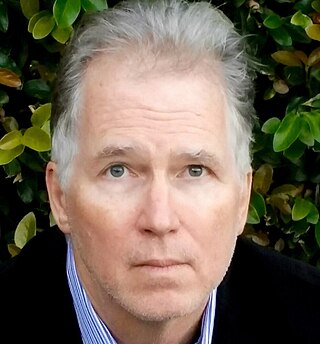
Steven Ernest Sailer is an American far-right writer and blogger. He is currently a columnist for Taki's Magazine and VDARE, a website associated with white supremacy.

Deborah Leigh Blum is an American science journalist and the director of the Knight Science Journalism program at the Massachusetts Institute of Technology. She is the author of several books, including The Poisoner's Handbook (2010) and The Poison Squad (2018), and has been a columnist for The New York Times and a blogger, via her blog titled Elemental, for Wired.
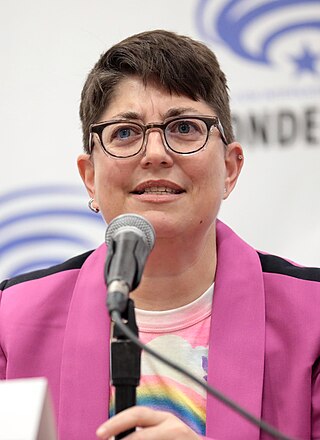
Annalee Newitz is an American journalist, editor, and author of both fiction and nonfiction. From 1999 to 2008, Newitz wrote a syndicated weekly column called Techsploitation, and from 2000 to 2004 was the culture editor of the San Francisco Bay Guardian. In 2004, Newitz became a policy analyst at the Electronic Frontier Foundation. With Charlie Jane Anders, they also co-founded Other magazine, a periodical that ran from 2002 to 2007. From 2008 to 2015, Newitz was editor-in-chief of Gawker-owned media venture io9, and subsequently its direct descendant Gizmodo, Gawker's design and technology blog. They have written for the periodicals Popular Science, Film Quarterly and Wired. As of 2019, Newitz is a contributing opinion writer at The New York Times.
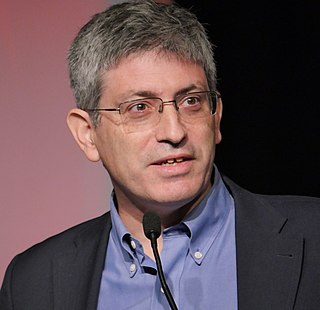
Carl Zimmer is a popular science writer, blogger, columnist, and journalist who specializes in the topics of evolution, parasites, and heredity. The author of many books, he contributes science essays to publications such as The New York Times, Discover, and National Geographic. He is a fellow at Yale University's Morse College and adjunct professor of molecular biophysics and biochemistry at Yale University. Zimmer also gives frequent lectures and has appeared on many radio shows, including National Public Radio's Radiolab, Fresh Air, and This American Life.

Science journalism conveys reporting about science to the public. The field typically involves interactions between scientists, journalists and the public.

Christopher Cole Mooney is an American journalist and author of four books including The Republican War on Science (2005). Mooney's writing focuses on subjects such as climate change denialism and creationism in public schools, and he has been described as "one of the few journalists in the country who specialize in the now dangerous intersection of science and politics." In 2020 he was awarded a Pulitzer Prize for a series of articles on global warming published in The Washington Post.

Jayson Stark is an American sportswriter and author who covers baseball for The Athletic. He is most known for his time with The Philadelphia Inquirer and ESPN.
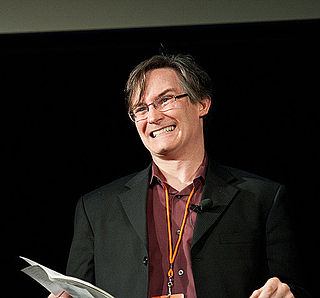
John Rennie is an American science writer who was the seventh editor in chief of Scientific American magazine. After leaving Scientific American in 2009, he began writing for Public Library of Science (PLoS) Blogs. Rennie has also been involved with several television programs and podcasts as well as multiple writing projects, including his latest position as a deputy editor on the staff of Quanta Magazine.
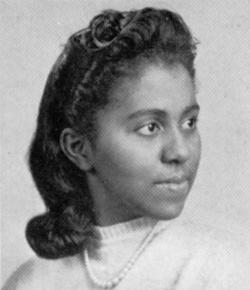
Marie Maynard Daly was an American biochemist. She was the first African-American to receive a Ph.D. from Columbia University and the first African-American woman in the United States to earn a Ph.D. in chemistry. Daly made important contributions in four areas of research: the chemistry of histones, protein synthesis, the relationships between cholesterol and hypertension, and creatine's uptake by muscle cells.

Expelled: No Intelligence Allowed is a 2008 American documentary-style propaganda film directed by Nathan Frankowski and starring Ben Stein. The film contends that there is a conspiracy in academia to oppress and exclude people who believe in intelligent design. It portrays the scientific theory of evolution as a contributor to communism, fascism, atheism, eugenics, and in particular Nazi atrocities in the Holocaust. Although intelligent design is a pseudoscientific religious idea, the film presents it as science-based, without giving a detailed definition of the concept or attempting to explain it on a scientific level. Other than briefly addressing issues of irreducible complexity, Expelled examines intelligent design purely as a political issue.

Benjamin Zimmer is an American linguist, lexicographer, and language commentator. He is a contributing editor for The Atlantic. He was formerly a language columnist for The Wall Street Journal, The Boston Globe, and The New York Times Magazine, and the editor of American dictionaries at Oxford University Press. Zimmer was also an executive editor of Vocabulary.com and VisualThesaurus.com.

Shankar Vedantam is an American journalist, writer, and science correspondent. His reporting focuses on human behavior and the social sciences. He is best known for his Hidden Brain family of products: book, podcast, and radio program.

Santanu Bhattacharya is an Indian chemical biologist and former professor at the Indian Institute of Science. At, present he is the Director of the Indian Institute of Science Education and Research, Tirupati (IISER-Tirupati). He is known for his studies of unnatural amino acids, oligopeptides, designed and natural lipids, gene delivery vehicles, hydro- and organogels, molecular bioanalytic sensors, G-quadruplex DNA binding molecular therapeutics, and biologically active natural product mimics and is an elected fellow of the Indian National Science Academy The World Academy of Sciences and the Indian Academy of Sciences The Council of Scientific and Industrial Research, the apex agency of the Government of India for scientific research, awarded him the Shanti Swarup Bhatnagar Prize for Science and Technology, one of the highest Indian science awards, in 2003, for his contributions to chemical sciences. He is also a recipient of the National Bioscience Award for Career Development of the Department of Biotechnology (2002) and the TWAS Prize (2010).

Bethany Brookshire is an American science journalist. She writes for Science News for Students.

Christie Aschwanden is an American journalist and the former lead science writer at FiveThirtyEight. Her 2019 book GOOD TO GO: What the Athlete in All of Us Can Learn From the Strange Science of Recovery, was a New York Times bestseller. She was awarded an American Association for the Advancement of Science Kavli Science Journalism Award in 2016 and serves on the board of the Council for the Advancement of Science Writing.
The Open Notebook(TON) is a science journalism non-profit organization, online magazine, and publisher. Its purpose is to help science journalists improve their skills. It publishes articles and interviews on the craft of science writing and maintains a database of successful pitch letters to editors. TON also runs a paid fellowship program for early-career science journalists. The Open Notebook is supported by foundation grants and individual donations, and also partners with journalism and science communication organizations.
Richard Panek is an American popular science writer, columnist, and journalist who specializes in the topics of space, the universe, and gravity. He has published several books and has written articles for a number of news outlets and scientific organizations, including Scientific American, WIRED, New Scientist, and Discover.
















